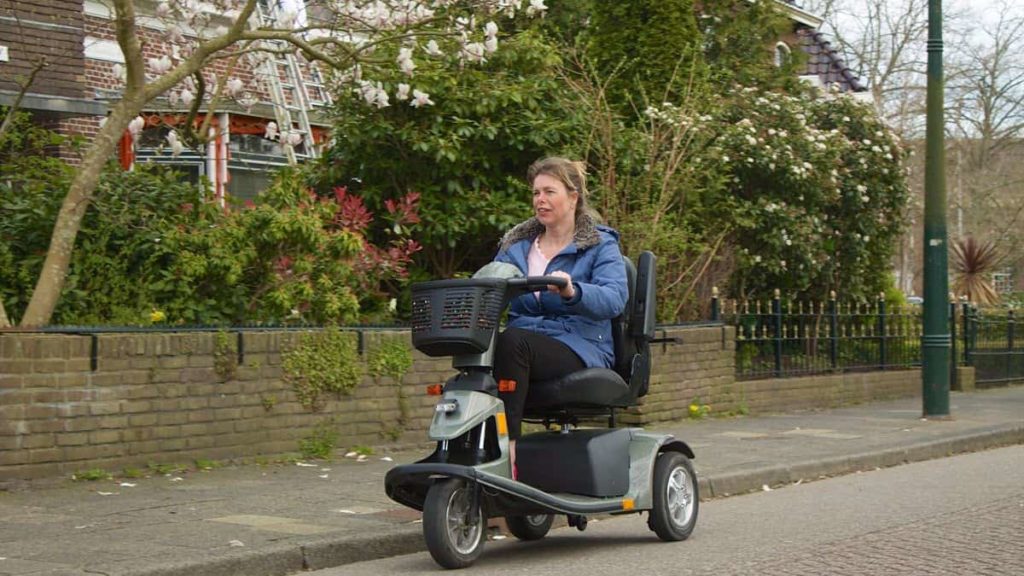Prioritize Your Health: Comprehensive Guide to Preventive Health Screening
Ever wondered how you can stay one step ahead of health problems? Preventive health screening is your answer.
Imagine having a magic window into your health, one that lets you peek at what’s going on under the hood before your body even starts to whisper that something might be wrong.
From blood tests that unveil secrets about your heart to screenings that catch silent threats like cancer early on, it’s all about keeping you in the best shape possible.
But with so many preventative health options for out there, figuring out which screenings are right for you might seem overwhelming at first.
Table Of Contents:
- Understanding Preventive Health Screening
- How Preventive Health Screenings Work
- Gender-Specific Health Screenings
- The Role of Lifestyle in Preventive Health
- Technological Advances in Health Screenings
- Navigating Insurance and Health Screenings
- The Psychological Impact of Health Screenings
- Myths vs. Facts About Preventive Health Screenings
- Preparing for Your First Preventive Health Screening
- FAQs in Relation to Preventive Health Screening
- Conclusion
Understanding Preventive Health Screening
Preventive health screening is like a secret weapon in your healthcare arsenal.
It’s all about catching potential health issues before they become a big problem.
By getting regular check-ups and screenings, you can nip any budding health concerns in the bud.
Preventive health screening is so important because it can literally save your life.
Many serious diseases, like cancer and heart disease, don’t show symptoms until they’re advanced. But with early detection through screening, you have a much better chance of successful treatment.
Plus, preventive care can save you money in the long run. It’s way cheaper to prevent a disease than to treat it once it’s taken hold.
Types of Preventive Health Screenings
There are a bunch of different preventive health screenings out there. Some of the most common ones are:
- Blood pressure checks
- Cholesterol tests
- Diabetes screenings
- Mammograms for breast cancer
- Pap smears for cervical cancer
- Colonoscopies for colon cancer
- Cardiovascular disease screenings
- Obesity screenings
- Glaucoma tests
- Type 2 diabetes tests
Your doctor can help you figure out which screenings are right for you based on your age, gender, family history, and lifestyle.
How Preventive Health Screenings Work
So, how exactly do preventive health screenings work? Let’s break it down.
First, you’ll need to schedule your screening appointment.
You can usually do this through your doctor’s office or sometimes directly with the facility doing the screening.
Make sure to check with your insurance provider to see what’s covered. Many preventive services are free under most plans, thanks to the Affordable Care Act.
During the Screening
The actual screening process will vary depending on what you’re being screened for. It could be as simple as a blood pressure check or as involved as a colonoscopy.
But don’t worry, the healthcare professionals will walk you through every step.
Getting Your Results
After your screening, you’ll typically get your results within a few days to a few weeks. Your doctor will likely call you to discuss the findings and next steps.
If everything looks good, great. If there are any concerns, your doctor will work with you on a plan. That might mean more tests or starting treatment.
Remember, knowledge is power. Even if a screening reveals an issue, it’s better to know early so you can take action.
Gender-Specific Health Screenings
Men and women have some unique health concerns, so there are certain screenings that are gender-specific.
Screenings for Women
Ladies, you’ve got a few extra screenings to stay on top of:
- Pap smears and HPV tests for cervical cancer.
- Mammograms for breast cancer.
- Bone density scans for osteoporosis.
Pregnant women also have a whole set of prenatal screenings to ensure a healthy pregnancy and baby.
Screenings for Men
Guys, you’re not off the hook. Here are some key screenings for you:
- Prostate cancer screenings.
- Abdominal aortic aneurysm screenings (if you’ve ever smoked).
Of course, all the general screenings like blood pressure and colon cancer checks apply to men too.
The Role of Lifestyle in Preventive Health
Your lifestyle plays a huge role in your overall health and risk for certain diseases. And that, in turn, impacts what preventive screenings you need and how often.
You are what you eat, as they say. A diet high in processed foods, saturated fats, and added sugars can up your risk for conditions like obesity, heart disease, and certain cancers.
A healthy diet rich in fruits, veggies, whole grains, and lean proteins may reduce your need for some screenings.
Exercise and Physical Activity
Regular exercise is like a magic pill for your health. It can:
- Strengthen your heart.
- Control your weight.
- Improve your mental health.
- Lower your risk for chronic diseases.
Aim for at least 150 minutes of moderate activity a week such as walking, seniors yoga, or swimming. If you’re not active, your doctor may recommend more frequent screenings.
Preventive health screenings are your healthcare secret weapon, catching issues early to save lives and money. From blood pressure checks to cancer screenings, they’re tailored by age, gender, and lifestyle.
Technological Advances in Health Screenings
Gone are the days of invasive, uncomfortable health screenings. Thanks to cutting-edge technology, preventive health screenings have become more accurate, less invasive, and way more accessible.
From AI-powered imaging to liquid biopsies, the world of health screenings is evolving quickly. These advancements mean earlier detection, more personalized care, and better outcomes for patients.
Take 3D mammography, for example. This game-changing tech uses low-dose x-rays to create a 3D image of the breast, making it easier to spot abnormalities.
The result? A whopping 41% increase in invasive breast cancer detection, according to a study published in the Journal of the American Medical Association.
The Rise of Telemedicine
The COVID-19 pandemic has accelerated the adoption of telemedicine, making preventive health screenings more accessible than ever.
With just a few clicks, you can now connect with healthcare providers from the comfort of your own home.
No more long drives or waiting rooms – just convenient, on-demand care.
Navigating Insurance and Health Screenings
Let’s face it – navigating insurance coverage for preventive health screenings can be a headache.
First things first – get to know your insurance plan. Most plans cover a range of preventive services, like mammograms, colonoscopies, and blood pressure screenings, at no cost to you.
But there are always exceptions and fine print. Don’t be afraid to call your insurance provider and ask questions regarding the health services that you are covered for, so that you can make more informed health decisions.
Out-of-Pocket Costs
In some cases, you may be responsible for out-of-pocket costs for preventive screenings.
This can happen if you use an out-of-network provider or if your screening isn’t considered preventive.
To avoid surprises, always double-check with your insurance provider before scheduling a screening. And don’t be afraid to shop around – prices can vary widely between providers.
The Psychological Impact of Health Screenings
Let’s be real – the thought of undergoing a health screening can be scary. What if they find something wrong? What if it’s painful or embarrassing?
These fears are totally normal. But they shouldn’t keep you from taking care of your health.
One of the best ways to manage screening-related anxiety is to arm yourself with knowledge.
It also helps to talk to someone you trust – a friend, family member, or healthcare provider. Sometimes just voicing your fears can make them feel less overwhelming.
Coping Strategies
If you’re feeling anxious about an upcoming screening, try some simple coping strategies:
- Practice deep breathing or meditation.
- Distract yourself with a book, movie, or music – Visualize a positive outcome.
- Treat yourself to something relaxing, like a massage or a warm bath.
Remember – you’re not alone. Millions of people undergo preventive health screenings every year, and the vast majority have a positive experience.
Myths vs. Facts About Preventive Health Screenings
There’s a lot of misinformation out there about preventive health screenings.
Let’s set the record straight.
Fact: While some screenings may cause discomfort, most are quick and painless. And thanks to technological advancements, many screenings are becoming less invasive.
Myth: I don’t need screenings if I feel healthy.
Fact: Many serious health conditions, like high blood pressure and cancer, often have no symptoms in the early stages. That’s why regular screenings are so important – they can catch problems early, when they’re most treatable.
Myth: Screening services are too expensive.
Fact: Most insurance plans cover a range of preventive screenings at no cost to you. And even if you do have to pay out of pocket, the cost is often much lower than treating a serious health condition down the road.
Preparing for Your First Preventive Health Screening
So, you’ve scheduled your first preventive health screening. Congrats.
You’re taking a big step towards better health. Now what? Here are some tips to help you prepare:
- Make a list of any medications you’re taking.
- Write down any symptoms or health concerns you have.
- Gather any relevant medical records or test results.
- Arrange for transportation if needed.
- Get a good night’s sleep and eat a healthy meal.
During the Screening
- Wear comfortable, loose-fitting clothing.
- Bring a friend or family member for support if you’re feeling anxious.
- Don’t be afraid to ask questions or voice any concerns.
- Take deep breaths and try to relax.
After the Screening
- Follow any post-screening instructions from your healthcare provider.
- Schedule a follow-up appointment to discuss the results.
- Celebrate your commitment to your health.
Remember – preventive health screenings are a vital part of staying healthy. By taking a proactive approach to your health, you’re giving yourself the best chance at a long, happy life.
Health screenings have leveled up with tech, making them faster, less scary, and more accurate.
Whether it’s 3D mammograms or chatting with docs from your couch through telemedicine, taking control of your health is easier than ever. Don’t let insurance jargon scare you off; a little homework can go a long way.
And hey, if the thought of getting screened freaks you out, know that knowledge and some chill vibes (think deep breaths or a nice bath) can help ease those nerves.
FAQs in Relation to Preventive Health Screening
What is a preventive health screening?
A preventive health screening is a check-up designed to spot health problems before symptoms show up. The goal is to catch issues early to maintain your health for a longer period.
What is a preventative health measure?
A preventative health measure involves taking steps to prevent illness. This can include actions such as getting vaccinated, eating healthily, and exercising regularly. The primary focus is on avoiding sickness in the first place.
What are the most common health screenings?
The most common health screenings include blood pressure checks, cholesterol level tests, mammograms, and colonoscopies. These screenings are crucial for detecting significant health issues at an early stage.
What is not considered preventive care?
Treating existing conditions is not considered preventive care—it’s management. Therefore, if you’re already sick or injured, that care doesn’t count as preventive.
Conclusion
So here we are, at the end of our journey through the maze of preventive health screening.
It’s not just another item on your to-do list; it’s a crucial part of taking control over your own well-being.
Remember, these screenings aren’t about finding problems—they’re about empowering yourself with knowledge and staying two steps ahead of potential issues. And honestly, who wouldn’t appreciate having that kind of reassurance?
By making regular check-ups part of our routine now, we’re setting ourselves up for healthier tomorrows—proving once again that an ounce of prevention is worth a pound (or more) in cure.
Jill believes that life just keeps getting better as she gets older. She believes everyone can live a full life of endless possibilities, with the right mindset, a healthy diet and with exercise.






